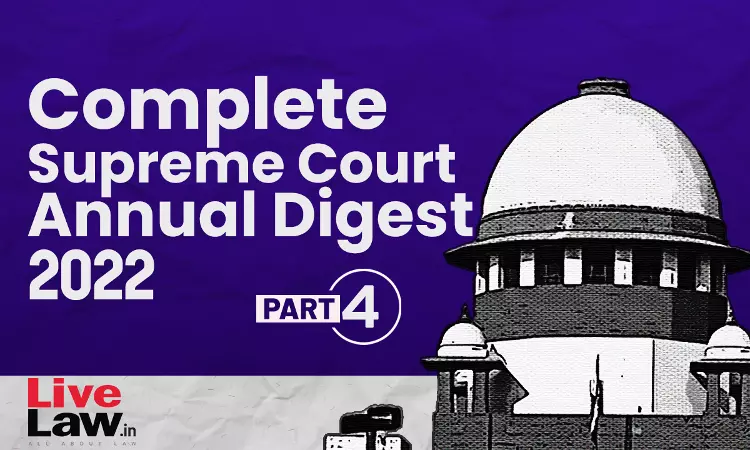- Home
- /
- Top Stories
- /
- Complete Supreme Court Yearly...
Complete Supreme Court Yearly Digest Part-4
LIVELAW NEWS NETWORK
15 Feb 2023 6:33 PM IST
Commercial Courts Act, 2015Commercial Courts Act, 2015 - Mediation lightens the load of the judges- Section 12A contemplated only for a class of suits not requiring urgent relief- suits which contemplate urgent interim relief, the Law-giver has carefully vouch-safed immediate access to justice as contemplated ordinarily through the courts. The carving out of a class of suits and selecting...
Next Story



